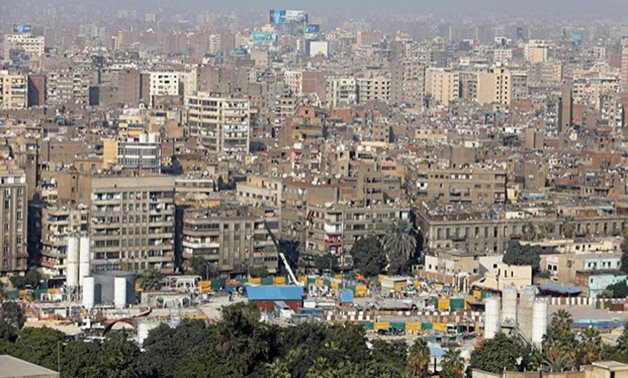
A general view of clustered buildings in Cairo, Egypt, January 28, 2018. REUTERS/Mohamed Abd El Ghany
CAIRO - 14 March 2023: The Egyptian economy grew during the second quarter (October-December) of the current fiscal year 2022/2023 by 3.9 percent, according to preliminary data from the Ministry of Planning and Economic Development.
Minister of Planning and Economic Development,Hala El-Said, reviewed in a meeting of the Egyptian Cabinet, Tuesday, indicators of the performance of the Egyptian economy during the second quarter of the current fiscal year 2022-2023, as well as the first half of the same year.
El-Said indicated that the Egyptian economy continued to grow during the second quarter of the current fiscal year by 3.9 percent, despite the global economic situation and the state of uncertainty imposed by global economic and geopolitical challenges and changes.
She said that the growth rates of a number of economic sectors witnessed an improvement in the second quarter of the fiscal year 2022-2023 on an annual basis.
The sectors of communications, agriculture, wholesale and retail trade, real estate activities, business services, social services, and construction contributed 80 percent to the growth of the gross domestic product.
The minister explained that according to preliminary data, the growth rate of the Egyptian economy during the first half of the current fiscal year was estimated at 4.2 percent.
“Despite the current effects of the Russian-Ukrainian crisis, which is likely to extend over the next year, the Egyptian economy is expected to grow by about 4.2 percent by the end of the fiscal year 2022/2023,” she added.
The Minister of Planning reviewed the development of inflationary trends in the Egyptian economy, and said that despite the state's success in curbing inflation and reducing it from extremely high levels (25 percent in 2016-2017) to less than 5 percent in 2020-2021, the inflation rate has risen again to about 15 percent in 2022, and continued to rise, especially after the Russian-Ukrainian crisis, to approach 33 percent in February 2023, as a result of a number of factors.
The minister indicated that the revenues of the Suez Canal reached $2.2 billion in the second quarter of the fiscal year 2022-2023, with a monthly average of $722 million, compared to about $1.7 billion in the corresponding quarter of the previous year, with a monthly average of $561 million.
She explained that the growth of these revenues is a result of the marketing policies pursued by the Suez Canal Authority, in attracting new shipping lines to cross through the Suez Canal, and as a reflection of some global changes, which led to an increase in the savings achieved by the Suez Canal compared to alternative routes in light of the high prices for chartering ships and “freight haulers”, the rise in oil prices and the change in the global trade map as a result of the Russian-Ukrainian crisis.
She stated that the unemployment rate decreased significantly, reaching 7.2 percent during the second quarter of the fiscal year 2022-2023.
El-Said stated that the performance indicators of the external sector improved in the first quarter of the fiscal year 2022-2023, as total exports increased by 12.4 percent, net foreign direct investment by 94 percent, and petroleum and non-oil exports also increased.
The minister pointed to a decline in global trade activity during 2022 to 5.4 percent, with a further slowdown expected to 2.4 percent during the current year. The reasons for this slowdown are attributed to the repercussions of the Russian-Ukrainian crisis, but at the same time there are expectations for an increase in global trade activity to 3.4 percent in 2024, according to El-said.

Comments
Leave a Comment